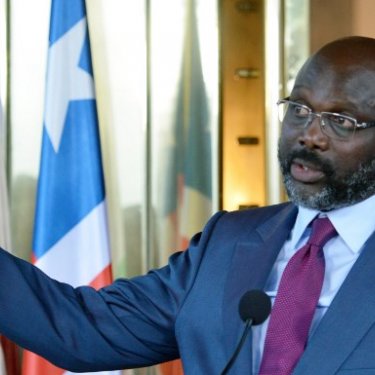Liberia’s Weah urged to do more to advance press freedom

Liberian President George Weah’s initial record on press freedom has been mixed and so, as he completes his first six months in office, Reporters Without Borders (RSF) is publishing a set of recommendations on how he could improve the environment for the media and journalists in Liberia.
The first six months of his presidency have been marked by a series of verbal attacks on journalists. Weah himself attacked BBC correspondent Jonathan Paye-Layleh at a news conference on 22 March, accusing the reporter of being “against” him when he, Weah, was fighting for human rights during the civil war.
In comments made publicly a few days before that, deputy information minister Eugenne Fahgnon said he hoped “the media in Liberia will remain poor or broke for the next 12 years.”
In an open letter to the United Nations secretary-general on 11 April, the Press Union of Liberia voice alarmed at the “pace at which official intolerance for independent journalism and dissent is escalating in Liberia.”
The letter was sent two days after the entire staff of the daily Frontpage Africa were briefly arrested and questioned by a court in connection with an announcement published in the newspaper that had criticized persons close to the ruling party.
President Weah is nonetheless on the point of keeping one of his campaign promises by decriminalizing press offences. Parliament is currently studying a bill that would repeal penal code provisions dating back to 1978 under which defaming the president and public officials and “sedition” in the media are punishable by imprisonment.
“The modifications to the penal code are essential in order to improve the legislative framework for Liberia’s media and journalists,” said Arnaud Froger, the head of RSF’s Africa desk. “But we urge President Weah to go further, above all by systematically condemning all verbal attacks and arbitrary arrests of journalists in his country.”
By publishing the recommendations that it submitted to President Weah in letter on 2 July, RSF hopes to encourage their rapid implementation so that Liberia can continue to progress in the World Press Freedom Index, in which it is now ranked 89th out of 180 countries, five places higher than last year.
RSF's recommendations
- keep the promises of the election campaign and guarantee press freedom, and media pluralism so as to allow for balanced news coverage on public interest issues by Liberian media
- condemn every verbal threats, acts of intimidation and groundless accusations toward journalists, especially from political officials as it seriously undermines the environment in which journalists are working
- undertake systematic and thorough investigation and prosecution of those responsible of crimes of violence against journalists by independent courts in order to reinforce the rule of law and to end impunity for crimes against journalists
- abide by the commitment of the Table Mountain Declaration (“Abolishing 'Insult Laws' and Criminal Defamation in Africa and Setting a Free Press Higher on the Agenda “) signed in July 2012 by your predecessor by adopting a law decriminalizing press related offences, as put forward by the Press Union of Liberia



